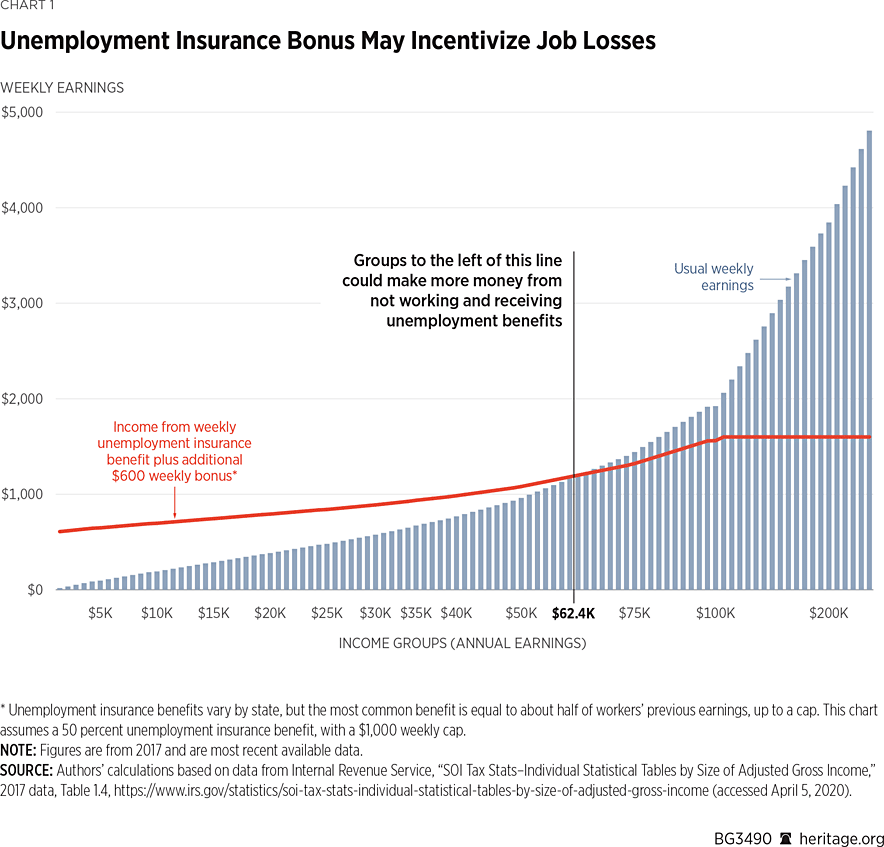One Washington small business owner was shocked at the reaction of her laid off employees who were outraged at the news her spas were among the lucky few enterprises to capture a forgivable government loan under the Paycheck Protection Program (PPP).
“It was a firestorm of hatred about the situation,” Jamie Black-Lewis told CNBC. The loan secured would allow operations to stay afloat once allowed to reopen by the state governor, meaning her employees would still have jobs after the pandemic.
Their grievances? That they would no longer be able to collect benefits on unemployment. The provisions of the loan under the PPP require Black-Lewis to keep her employees on payroll. Her staff however, had calculated they would rake in more cash from government checks doing nothing than staying on staff doing nothing while the spas remain closed.
“I couldn’t believe it. On what planet am I competing with unemployment?” Black-Lewis said.
This story unfortunately, was of Congress’ doing.
With soaring unemployment numbers, Congress passed the Coronavirus Aid Relief, and Economic Security (CARES) Act beefing up unemployment benefits by $600 a week on top of whatever was already provided by the state.
A new report from the conservative Heritage Foundation published Wednesday however, shows Congress did more harm than good in ramping up unemployment benefits by providing greater incentives for citizens to collect government handouts than earning a paycheck.
The study, authored by economists Drew Gonshorowski and Rachel Greszler, estimates that Congress could inflate unemployment by as much as 13.9 million over the pandemic while reducing GDP by up to nearly $1.5 trillion without capping benefits or tightening eligibility requirements loosened in the CARES Act.
By upping benefits with an additional $600 a week, Congress made it more profitable to collect money on unemployment insurance than retaining their employment, while also making it easier to qualify.
According to the report, the median full-time American worker earning $48,000 a year would take home 15 percent more from unemployment than remaining in their full-time job.
Meanwhile, loosened eligibility requirements allow workers to opt into government assistance without any kind of verification.
“Through one of the added eligibility provisions, Congress essentially put the ball in the worker’s side to decide whether they quit,” Greszler told The Federalist.
The CARES Act requires individuals seeking benefits “to quit his or her job as a direct result of COVID-19” verified only by self-assertion. New data from the Department of Labor released Thursday show new jobless claims eclipsing 30 million as state lockdowns continue to take an economic toll under the pandemic. At least a third of these claims, the pair of Heritage economists say, likely could have been avoided had Congress acted more responsibly with limited measures put in place such as capping benefits at no more than 100 percent of worker’s wages.
The chart below illustrates how spiking the level of assistance without an income cap creates incentive for workers to take advantage of the expanded program, where the typical American earning less than $62,000 a year could make more by forgoing a paycheck for government assistance.

“The incentive is very clear,” Greszler said, going on to caution that the loss of health care benefits remains concerning, particularly during a public health emergency. “Typically when workers lose their jobs they lose their health insurance and that’s the last thing that you want to happen during a public health pandemic.”
The expanded unemployment benefits creates a win-win situation for employers and their employees at a cost to the U.S. taxpayer. Firms enjoy the savings of not paying their workers who are making more on a government income anyway.
This set-up creates problems down the road as long-term employment becomes jeopardized while driving up the nation’s already staggering nearly $25 trillion dollar debt.
“We’re getting to the point when our debt is as much a national security issue as anything else,” Greszler said. “While debt accumulates over time, and we know our fiscal outlook is unsustainable, fiscal crises themselves – when markets decide they won’t lend countries except at very high interest rates – come on rapidly prompting swift spending cuts and tax hikes.”
In other words, a financial crisis is imminent, and every dollar spent today financing unnecessary unemployment claims will eventually have to be paid back.








